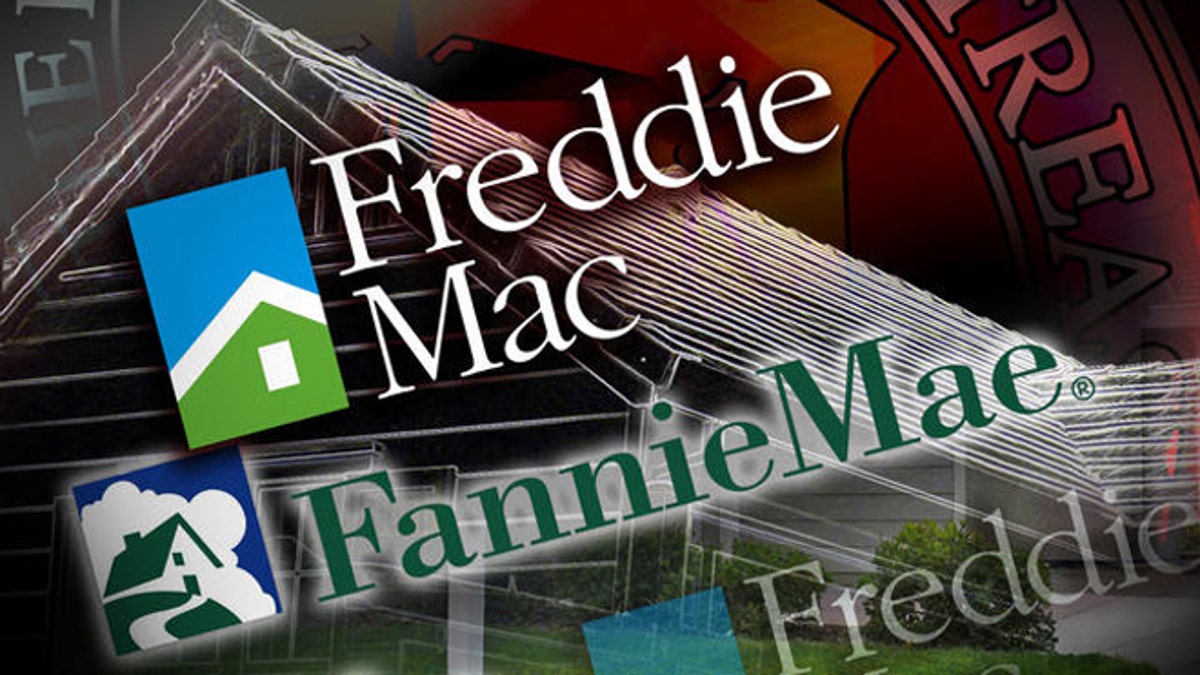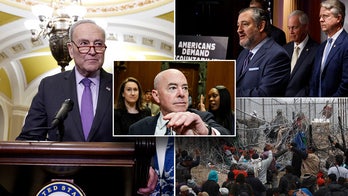
(AP)
More than five years after the housing bubble burst -- sending the U.S. economy into a tailspin from which it has yet to fully recover -- the two government-backed entities at the heart of the bust remain deeply in debt.
At a time when the government is struggling just to pay its bills, the sustained troubles of Fannie Mae and Freddie Mac continue to lead to calls from many to privatize the mortgage giants.
"The biggest problem with Fannie Mae and Freddie Mac is that they are financial institutions with a social mission," said Tom Schatz, president of Citizens Against Government Waste.
That social mission, critics say, is to heavily subsidize mortgages for people who don't meet sound lending qualifications. "Lower income homes have a tougher time paying mortgages and when the housing market started to go under, that was the first to go," Schatz said.
Both Fannie Mae, which was founded in 1938 during the Great Depression, and Freddie Mac, created in 1970, had historically been restricted to so-called prime loans -- or high-quality loans. That ended in 1992, under the George H.W. Bush administration, when Congress passed the Safety and Soundness Act, which required the Department of Housing and Urban Development to promote affordable housing.
American Enterprise Institute scholar Edward Pinto said this "actually planted the seeds of the destruction of Fannie and Freddie" by feeding "the boom and the bust."
Pinto said that bad choice led to another when, in 1995, the Clinton administration created the National Homeownership Strategy. "Its cornerstone was doing away with downpayments. So you had now Fannie and Freddie, instead of doing prime loans, were doing progressively more risky and risky loans."
The George W. Bush administration also pushed low-income homeownership, but sounded alarms about the health of Fannie and Freddie as early as the fall of 2003, when ex-Treasury Secretary John Snow told a congressional committee: "We need a strong, world-class regulatory agency to oversee the prudential operations of the GSE's (government-sponsored enterprises)."
Some refused to pay heed to Snow's warning. The then-ranking member of the House Financial Services Committee, Barney Frank, told Snow: "The more people, in my judgment, exaggerate a threat of safety and soundness, the more people conjure up the possibility of serious financial losses to the Treasury, which I do not see ... then the less I think we see in terms of affordable housing."
Today, taxpayers are stuck with the bill for the government's poor judgment.
"In June 2011, the Congressional Budget Office said that taxpayer liability for Fannie and Freddie had reached $148 billion and could go up to $317 billion," Schatz warned.
Pinto believes the government further distorts the mortgage market through its 12 federal home loan banks, the Federal Housing Administration, and Ginnie Mae.
The departments of Agriculture and Veterans Affairs also provide mortgage assistance.
But Pinto singles out FHA, in particular. "It has really become the escape valve for riskier lending," he said. "They could take the riskiest loan that they'll do, and they'll price it the same in terms of a guarantee fee or an insurance fee as the least risky product they'll do. That's because Congress won't let them price for risk. They basically said we don't want you to price for risk, we want you to have these distortions."
Sen. Tom Coburn, R-Okla., said this was all done "in the name of doing good" but described it as a "misdirected compassion for something that you couldn't actually accomplish."




